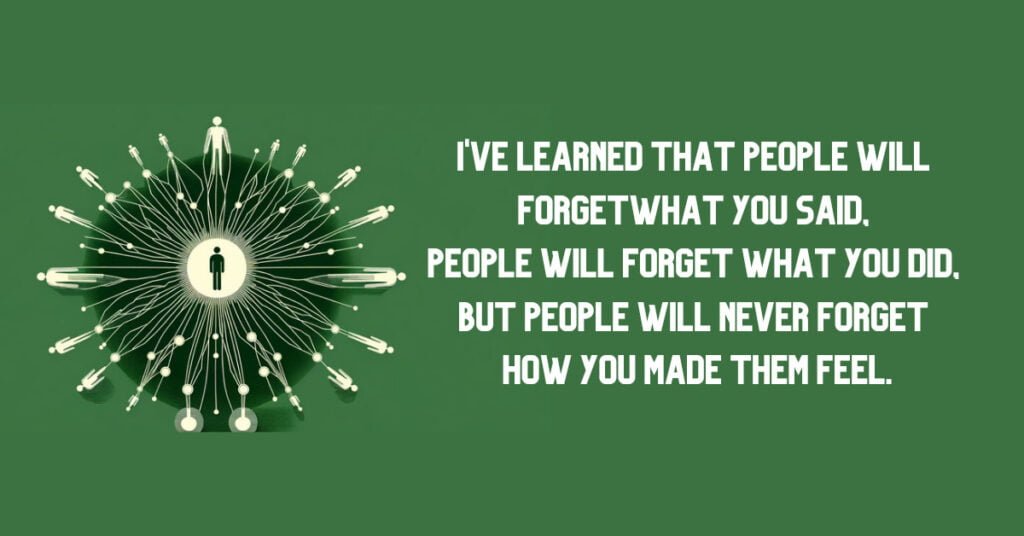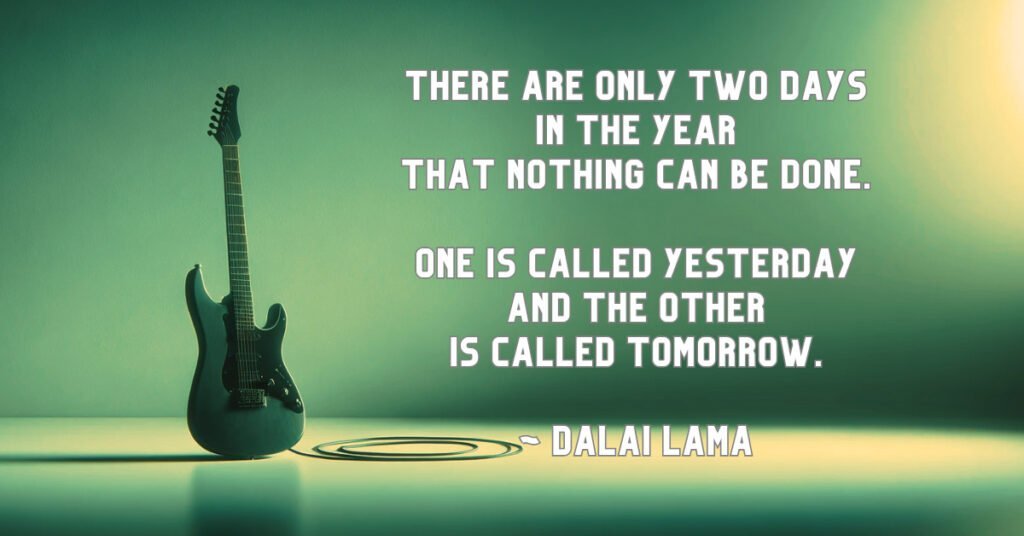Introduction: Harmonizing Emotions with Life’s Melody

Maya Angelou’s profound statement, “I’ve learned that people will forget what you said, people will forget what you did, but people will never forget how you made them feel,” resonates like a classic rock anthem in the world of human relationships. This insightful quote captures the essence of emotional impact in human interactions, emphasizing that our emotions play a lead role in the memories we create, akin to a memorable guitar solo that defines a song. The emotional resonance we generate in others often overshadows the specifics of what we say or do, leaving a lasting imprint much like the lingering notes of a powerful melody.
In this exploration, we delve into various life scenarios where our emotional connections, echoing the timeless nature of music, leave an indelible mark on our lives and those we interact with. We will see how, in different aspects of life, the emotions we evoke play a crucial part in shaping how we are remembered, similar to how a well-composed song stays with us long after it ends.
The Symphony of Emotional Memory
In Education: A teacher’s passion and enthusiasm often leave a more profound impression on students than the specific content of their lessons. The lasting influence of this emotional connection mirrors Angelou’s message, showing that the inspiration and motivation (how students were made to feel) linger far longer than the actual lessons (what was said).
In Leadership: An empathetic and understanding leader can create a team spirit that transcends specific projects or tasks. This scenario reflects Angelou’s concept, highlighting that the emotional environment created by the leader (how the team was made to feel) is more memorable than the exact details of their management (what was done).
In Personal Growth: The emotional support and motivation provided by a mentor or coach often have a lasting impact, surpassing the specific advice given. This aligns with Angelou’s message, illustrating that the sense of empowerment and belief in one’s abilities (how they were made to feel) is more impactful and memorable than the words themselves (what was said).
The Role of Emotional Intelligence
In Healthcare: The way a doctor communicates a diagnosis, with compassion and sensitivity, can have a significant impact on a patient’s experience, often more than the detailed medical information. This illustrates Angelou’s idea, showing that patients remember the empathy and care (how they were made to feel) more than the medical details (what was said).
In Advertising: An advertisement that elicits laughter and joy creates a stronger, more lasting connection with the audience than the actual content of the ad. This demonstrates Angelou’s concept, indicating that the emotional reaction (how the ad made viewers feel) is more memorable than the message itself (what was said).
In Community Service: The warmth and kindness of volunteers at a shelter can create a deeper impression than the specific tasks they perform. This example reinforces Angelou’s notion, underscoring that the emotional connection and sense of community (how people were made to feel) is more significant than the actions taken (what was done).
The Ripple Effect of Emotions
In Daily Interactions: Simple acts of kindness, such as offering assistance, can leave a profound and lasting effect. These actions embody Angelou’s quote, showing that the gratitude and positivity they generate (how someone was made to feel) are often more impactful than the acts themselves (what was done).
In Networking: The emotional connection established during a brief but meaningful professional conversation can be more influential than the discussion’s content. This emphasizes the importance of emotional connections in networking, where the feeling of respect and genuine interest (how someone was made to feel) is more memorable than the actual exchange (what was said).
In Family Life: The emotional comfort and love experienced during family interactions, like sharing bedtime stories, often become cherished memories. This illustrates Angelou’s message, demonstrating that the feelings of safety and affection (how children were made to feel) are more significant than the specific stories or activities (what was said or done).
Conclusion: The Lasting Resonance of Our Emotional Expressions
As we reach the finale of our exploration, Maya Angelou’s words remind us of the powerful and enduring nature of emotional connections. Just as a poignant lyric in a beloved rock song can stir deep feelings, the emotions we evoke in others leave a profound and lasting impact. Our interactions might be fleeting, like a song on the radio, but the feelings they generate can echo through time, shaping memories and influencing perceptions.
In every interaction, whether in education, leadership, personal growth, healthcare, advertising, community service, or our daily lives, we have the opportunity to create an emotional legacy. By focusing on evoking positive emotions, we cultivate a legacy of kindness, empathy, and understanding. This emotional legacy, much like a classic rock anthem, resonates in the hearts and minds of those we touch, ensuring that we are remembered not for our actions or words, but for the unforgettable impressions we leave behind.


